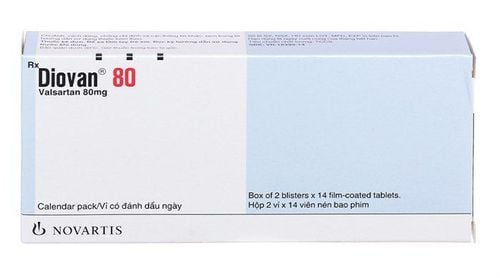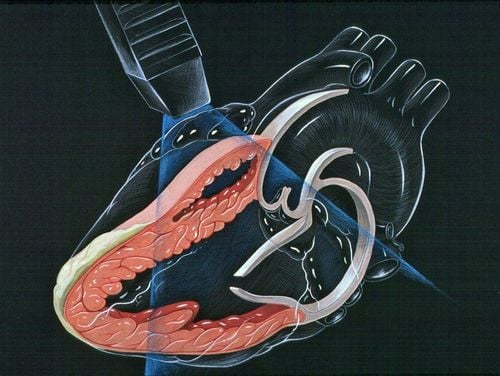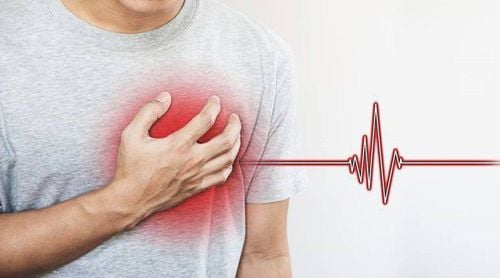This is an automatically translated article.
The article was professionally consulted by Specialist Doctor II Nguyen Quoc Viet - Interventional Cardiologist - Department of Medical Examination & Internal Medicine - Vinmec Danang International General Hospital.In the treatment of stage 3 heart failure, in addition to medication and lifestyle adjustments, doctors also consider the direction of using a left ventricular assist device. One of them is a ventricular assist device, which is often indicated in patients with severe or end-stage heart failure.
1. Ventilator assist device
1.1. Types of Ventricular Assist Devices Many types of ventricular assist devices have been used in the treatment of severe stage 3 heart failure, including:Abiomed biventricular system (BVS); Heartmate; NovaCor; Thoratec. 1.2. Indications to use ventricular assist device In the past, doctors only considered the use of ventricular assist device as a "bridging" measure, to help the heart that is severely failing while waiting for a heart transplant. . However, now this treatment indication has been extended to all the following cases:
Cardiogenic shock after myocardial infarction or heart surgery; Irreversible heart failure, with or without a heart transplant; Acute myocarditis ; Severe ventricular arrhythmias. 1.3. Patient Selection Criteria To use a ventricular assist device, patients with heart failure need to meet a number of appropriate selection criteria. Specifically, only treatment with the device for patients with severe symptoms lasting more than 2 months, despite optimal medical treatment, still falls into at least 2 of the following cases:
Ejection fraction Left ventricular EF < 25% and oxygen consumption (VO2) cannot exceed 12 mL/kg/min. At least 3 hospitalizations for heart failure within the past 12 months without an obvious predisposing factor. Depends on the intravenous route of vasopressors. Progressive target organ dysfunction: Renal function and/or liver function worsening due to hypoperfusion. Not due to insufficient ventricular filling pressure, specifically pulmonary capillary pressure ≥ 20 mmHg and systolic blood pressure ≤ 80-90 mmHg or heart index ≤ 2 L/min/m2. Right ventricular function worsens.

2. Treatment of severe heart failure
2.1. Treatment of heart failure stage 3 When the patient already has structural heart disease, accompanied by previous symptoms of advanced heart failure, such as: Shortness of breath, fatigue, reduced exercise capacity, ... then it is classified as stage C heart failure. The goal of treatment at this time is to apply all measures of the previous two stages, and at the same time limit salt in the patient.Besides medication, treatment with devices will be indicated in some patient cases. Depending on the progression of heart failure and the actual condition, the doctor will choose the method of implanting a defibrillator pacemaker (ICD), myocardial resynchronization, biventricular pacing (CRT) or using a ventricular assist device.
2.2. Treatment of stage D heart failure Using a permanent mechanical assist device is one of the special treatment options in end-stage heart failure, alongside a heart transplant or long-term injections. A reasonable and beneficial indication for a select group of patients is to consider the possibility of placing a left ventricular assist device in patients with end-stage heart failure. Accompanied by medical treatment conditions, the probability of survival is more than 50% for 1 year.
Based on the New York Heart Association functional class of heart failure, after patients with end-stage heart failure have been treated with Digoxin (h) and/or Hydralazine- Isosorbide Dinitrate (i) and remain in Grade II - IV, consider applying left ventricular assist device and/or heart transplant. Specifically:
Grade II: Slight limitation of physical activity. The patient is well at rest; fatigue, nervousness, shortness of breath or chest pain during normal physical activity. Grade III: Limited physical activity. Although the patient is well at rest, symptoms will appear even with light exercise. Grade IV: Discomfort during physical activity. Fatigue, palpitations, shortness of breath, or chest pain occur even at rest, and symptoms increase even with light physical activity.
3. Heart failure screening package at Vinmec

Group 1: Customers who have no symptoms of heart failure but have other cardiovascular diseases (hypertension, angina, diabetes, dysrhythmias). heartbeat, ... ). Or people in middle age (men ≥ 45 years old, women ≥ 50 years old), especially those with tobacco addiction, alcohol abuse or obesity. Group 2: People with common symptoms of heart failure such as shortness of breath, shortness of breath, persistent dry cough, feeling like body weakness, heaviness in the chest, dizziness, dizziness, fainting spells, pulse heart failure, edema, little urine, liver irritation, swollen neck veins,... When choosing to use the Heart Failure package at Vinmec International General Hospital, customers will be examined by Cardiology specialist, general practitioner. blood and urine cell analysis, quantification and measurement of substance activity in the blood, electrocardiogram, routine and stress echocardiography, chest x-ray along with a number of other services.
In April & May 2021, when there is a need for medical examination and treatment at Vinmec Times City International General Hospital, customers will enjoy dual incentives:
- Free specialist examination and discount 50% of many cardiac checkup packages such as:
+ Basic Cardiovascular Screening Package
+ Hypertension Checkup Package
+ Heart Failure Checkup Package
+ Coronary Cardiovascular Examination Package
+ Comprehensive Cardiovascular Checkup Package
- 50 off % of cost for customers with post-examination treatment indications. The program is limited to the corresponding technique of each hospital and to customers who perform this treatment technique for the first time at Vinmec.
Please dial HOTLINE for more information or register for an appointment HERE. Download MyVinmec app to make appointments faster and to manage your bookings easily.














